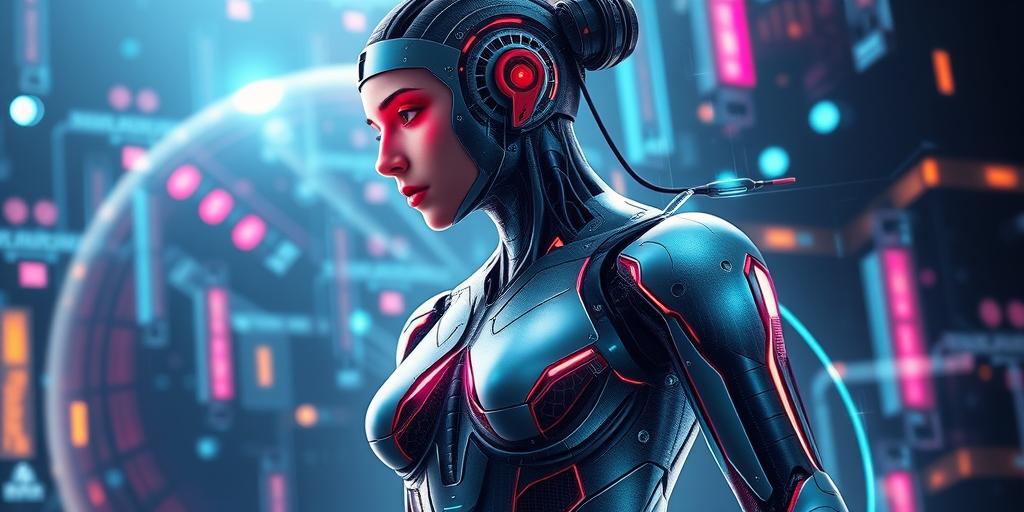The Merging of Humanity and Technology: Evolution's Next Chapter
For millennia, human evolution has been a story of natural selection, adaptation to environments, and the slow march of genetic change. But what happens when technology becomes inextricably linked to our biology? What does the future of human evolution look like when technology is not just a tool, but an integral part of our being?
The Rise of Technological Integration
From pacemakers to cochlear implants, we already have a foot in the door of technological integration. These devices enhance our physical capabilities, correct deficiencies, and even extend life. But these are just the beginning. As technology advances, we're moving towards more seamless and sophisticated integrations:
- Brain-Computer Interfaces (BCIs): Imagine controlling devices with your mind, or accessing information directly from the internet. BCIs promise to revolutionize how we interact with technology and the world around us.
- Genetic Engineering: CRISPR and other gene-editing technologies open the door to altering our DNA, potentially eradicating diseases, enhancing physical and cognitive traits, and even influencing the aging process.
- Cybernetics: The fusion of human and machine is no longer science fiction. As we develop more advanced prosthetics, exoskeletons, and implantable technologies, the line between human and machine will continue to blur.
The Implications for Human Evolution
These advancements raise profound questions about the future of human evolution:
- Accelerated Evolution: Technology allows us to bypass the slow process of natural selection. We can directly engineer solutions to physical and cognitive limitations, potentially accelerating our evolution in unprecedented ways.
- Directed Evolution: Instead of being shaped by random mutations and environmental pressures, our evolution could become a conscious and deliberate process. We could choose which traits to enhance, which diseases to eradicate, and what kind of future we want to create for ourselves.
- Social Inequality: Access to these technologies may not be equal. This could lead to a divide between those who can afford to enhance themselves and those who cannot, potentially creating a new form of social inequality based on technological augmentation.
- Ethical Dilemmas: As we gain the power to manipulate our biology, we must grapple with complex ethical questions. What are the limits of technological intervention? What are the potential unintended consequences of altering our genetic code?
Navigating the Future
The future of human evolution through technology is full of promise and peril. To navigate this uncharted territory, we need:
- Careful Consideration: We must carefully consider the ethical, social, and environmental implications of technological advancements before they become widespread.
- Inclusive Dialogue: Open and inclusive discussions are essential to ensure that these technologies are developed and used in a way that benefits all of humanity.
- Regulation and Oversight: Appropriate regulations and oversight mechanisms are needed to prevent misuse and ensure that these technologies are used responsibly.
Conclusion
The integration of technology into our biology has the potential to reshape the future of human evolution. By embracing responsible innovation, fostering inclusive dialogue, and prioritizing ethical considerations, we can harness the power of technology to create a future where humanity thrives.









